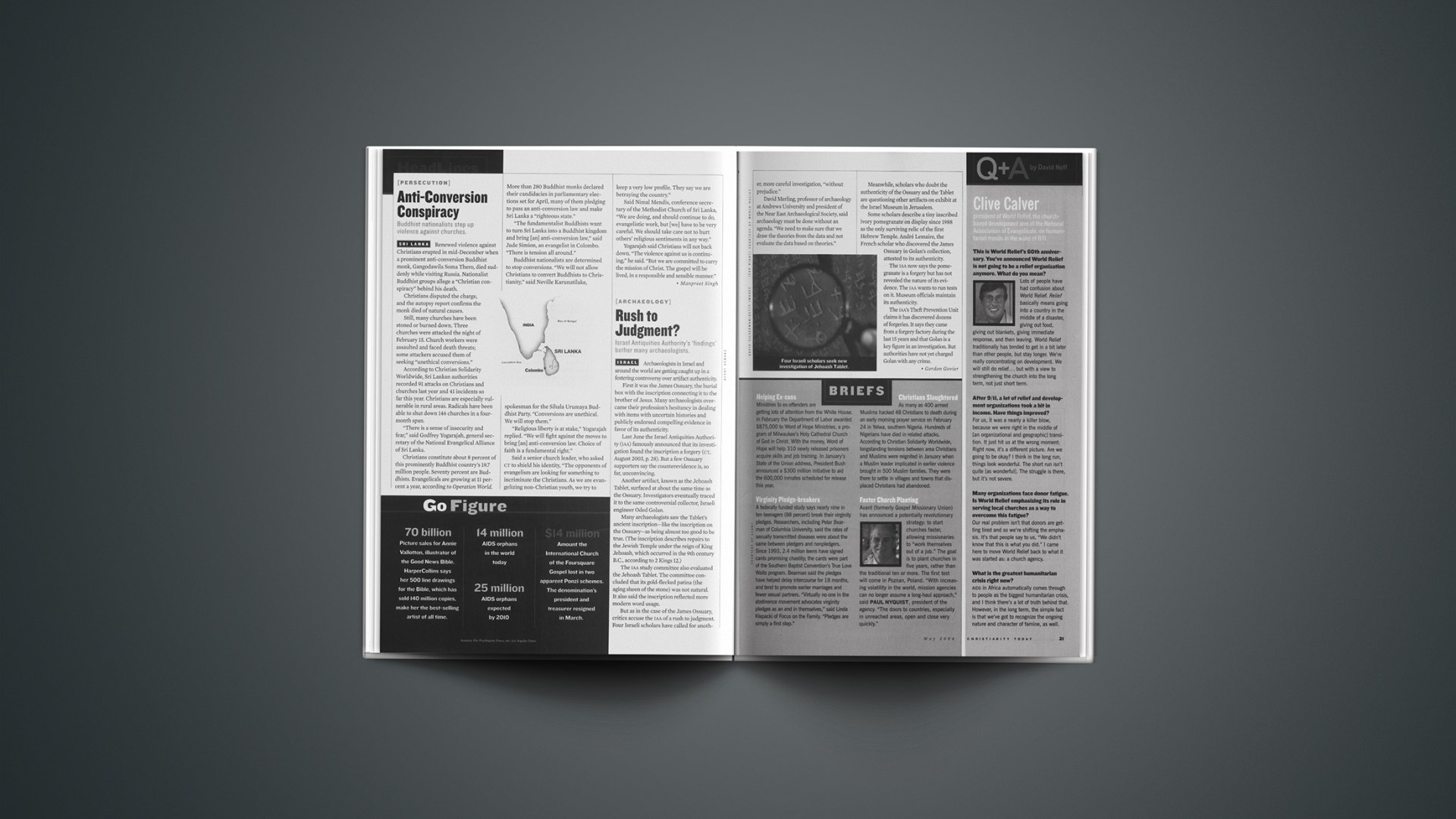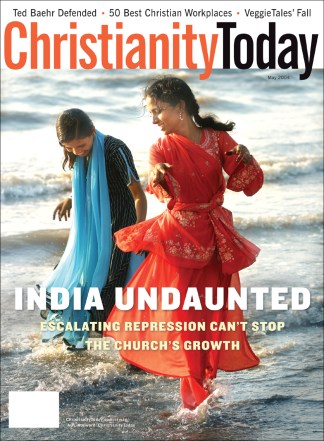This is World Relief’s 60th anniversary. You’ve announced World Relief is not going to be a relief organization anymore. What do you mean?
Lots of people have had confusion about World Relief. Relief basically means going into a country in the middle of a disaster, giving out food, giving out blankets, giving immediate response, and then leaving. World Relief traditionally has tended to get in a bit later than other people, but stay longer. We’re really concentrating on development. We will still do relief … but with a view to strengthening the church into the long term, not just short term.
After 9/11, a lot of relief and development organizations took a hit in income. Have things improved?
For us, it was a nearly a killer blow, because we were right in the middle of [an organizational and geographic] transition. It just hit us at the wrong moment. Right now, it’s a different picture. Are we going to be okay? I think in the long run, things look wonderful. The short run isn’t quite [as wonderful]. The struggle is there, but it’s not severe.
Many organizations face donor fatigue. Is World Relief emphasizing its role in serving local churches as a way to overcome this fatigue?
Our real problem isn’t that donors are getting tired and so we’re shifting the emphasis. It’s that people say to us, “We didn’t know that this is what you did.” I came here to move World Relief back to what it was started as: a church agency.
What is the greatest humanitarian crisis right now?
AIDS in Africa automatically comes through to people as the biggest humanitarian crisis, and I think there’s a lot of truth behind that. However, in the long term, the simple fact is that we’ve got to recognize the ongoing nature and character of famine, as well.
Copyright © 2004 Christianity Today. Click for reprint information.
Related Elsewhere:
Past Q&A columns include:
Franklin Graham | President of Samaritan’s Purse on Sudan (Feb. 16, 2004)
Bill Frist | The Senate Majority Leader on key moral issues. (March 24, 2004)










